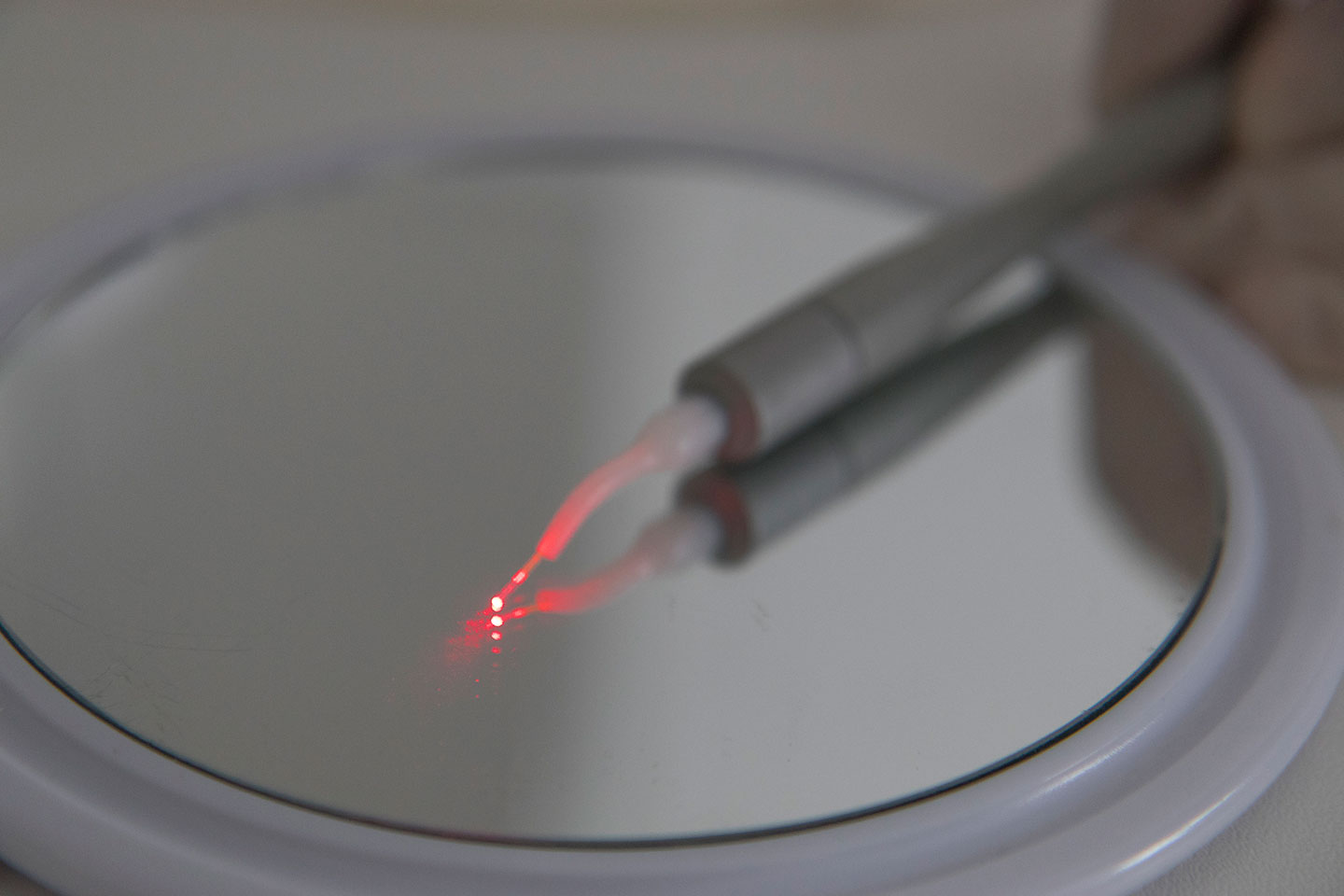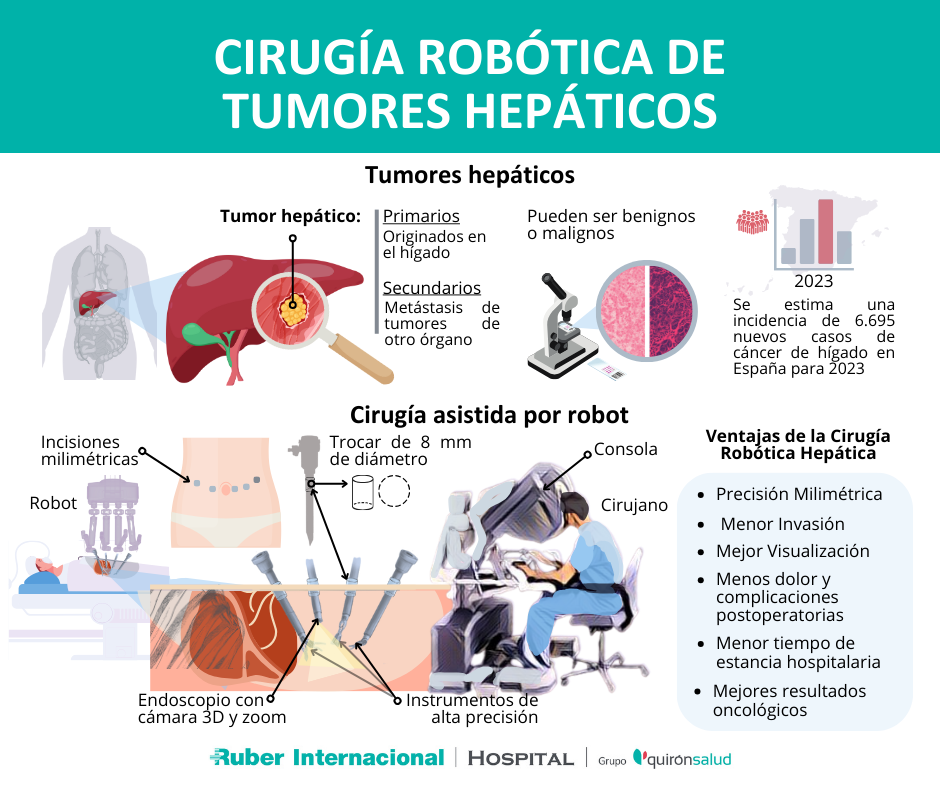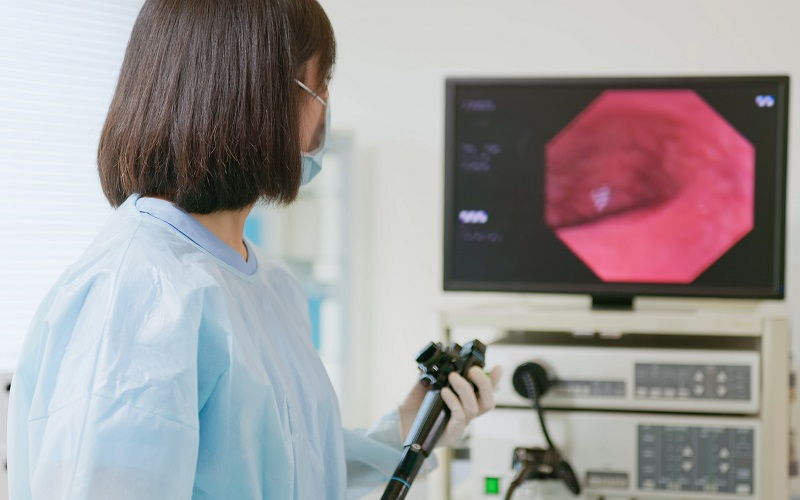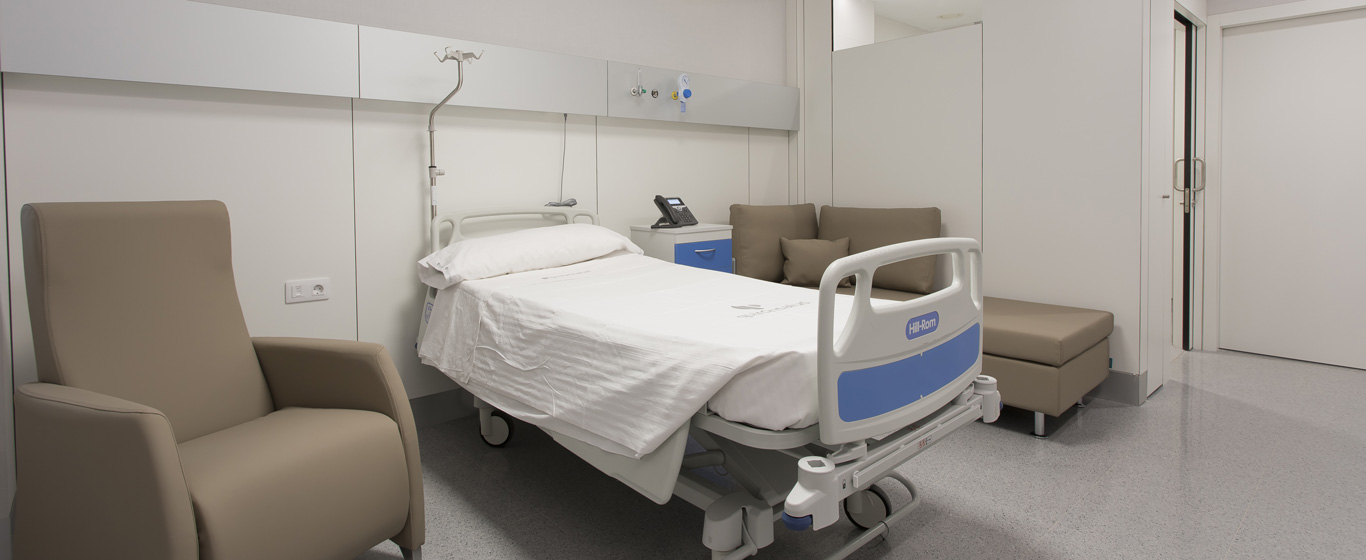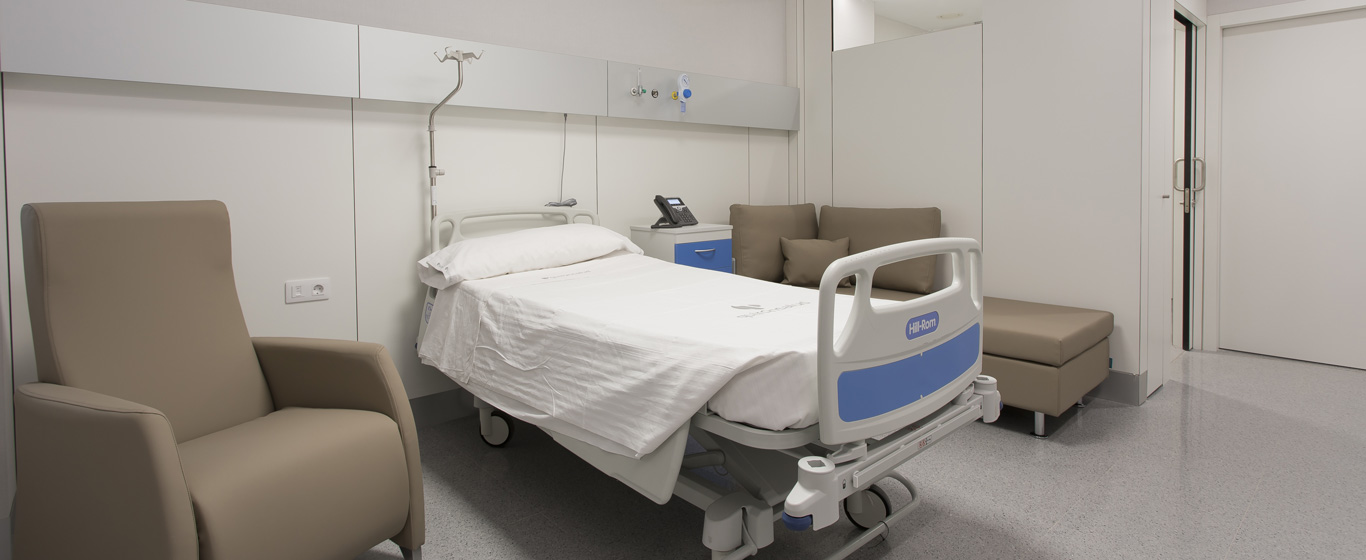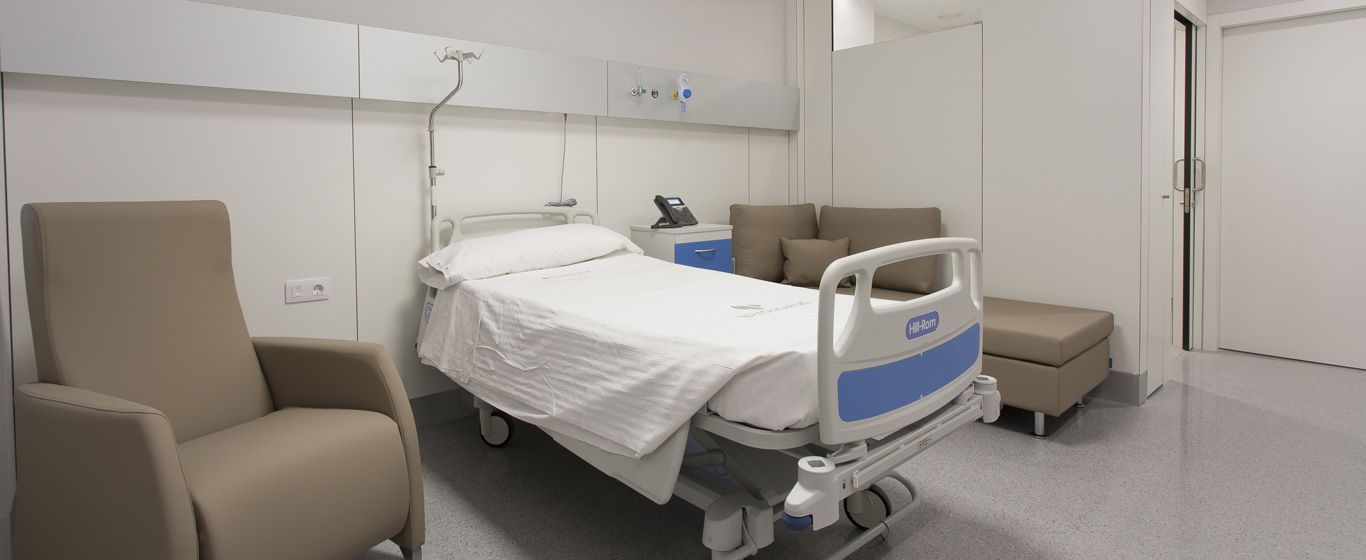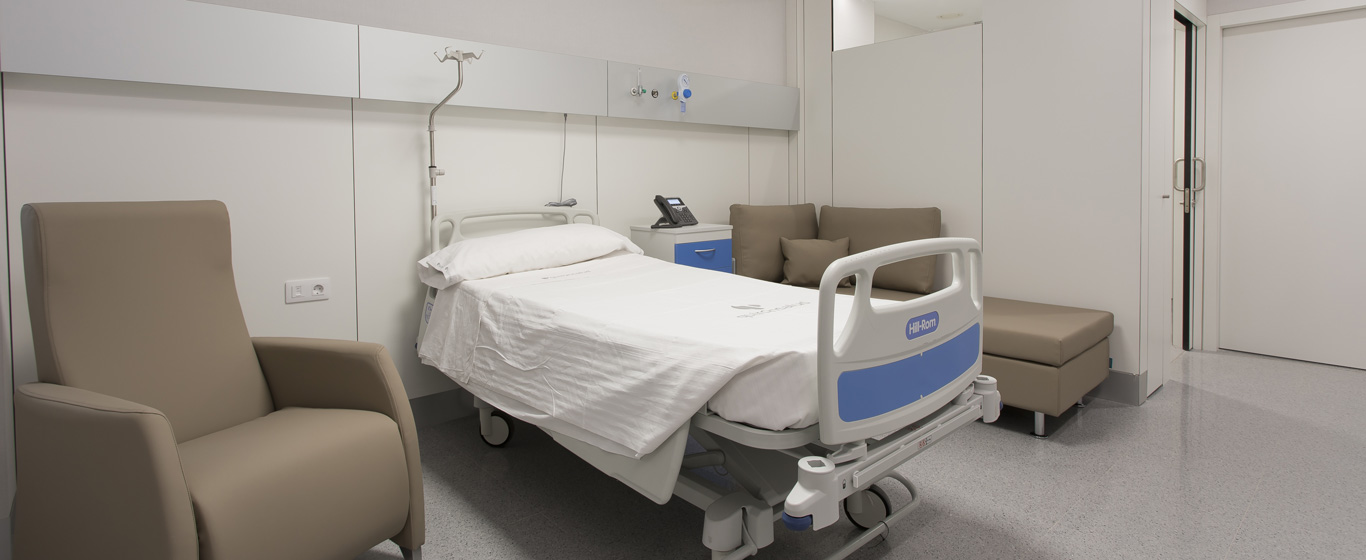Digestive System
Find out information about the digestive system speciality and the diseases it treats. We talk to you about the different treatments and tests that gastroenterologists carry out and the symptoms that can indicate a digestive pathology. Book your digestive consultation at one of our hospitals.
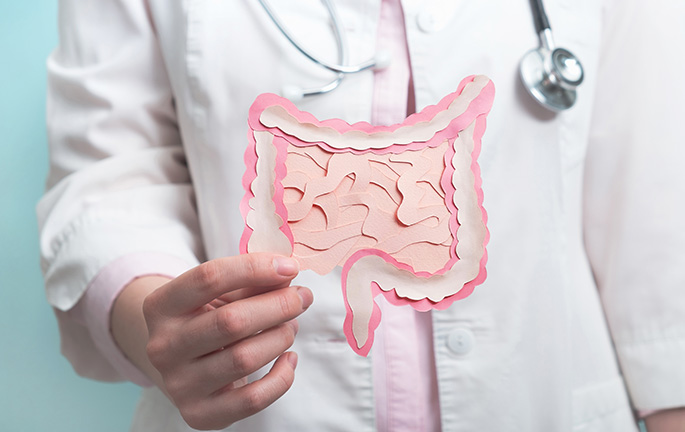
What is the digestive system speciality?
This medical speciality focuses on the care of pathologies of the digestive tract, pancreas, liver and biliary tract. It also addresses the ailments that digestive diseases can cause in other organs of the body. Gastroenterologists work in collaboration with general and digestive system surgeons in cases where a surgical procedure is the best treatment.
One of the main goals of digestive system specialists is the early detection of digestive tumours, which is essential to improve the prognosis and guarantee a cure.
What do gastroenterologists study?
As in other specialities, the digestive system encompasses a large number of different organs and pathologies. The subspecialisation of Quirónsalud gastroenterologists in specific areas allows them to offer personalised care to patients and make more accurate diagnoses. The main fields of study of digestive system doctors include the following:
- Hepatology unit: focusing on the proper functioning of and diseases affecting the liver.
- Inflammatory Bowel Disease (IBD) unit: works in a multidisciplinary way to care for patients diagnosed with IBD, improving their quality of life and finding the most suitable treatment.
- High-risk colorectal cancer (CRC) unit: monitors patients with a higher risk of developing CRC in order to make an early diagnosis, as it is a curable disease when detected in its early stages.
- Digestive motility unit: studies the alterations of digestive system movements, as they are the main cause of most gastrointestinal complaints.
- Digestive endoscopy unit: specialised in this type of diagnostic tests to detect alterations and diseases at an early stage.
Which patients is it for?
Our digestive system specialists treat patients with gastrointestinal diseases or digestive complaints that do not go away with the usual therapies or a change of habits.
In addition, gastroenterologists focus their efforts on promoting health and prevention among patients, by offering them digestive health advice to improve their habits and quality of life.
Techniques, procedures and diagnostic methods
The procedures carried out by digestive system specialists make it possible to diagnose and treat gastrointestinal disorders. Some of the most commonly used are:
- Upper endoscopy or gastroscopy: enables doctors to look inside the oesophagus, stomach and duodenum by inserting a probe with a light source via the throat.
- Colonoscopy: a flexible tube with a camera on the end is inserted into the rectum to obtain images of the inside of the colon and rectum.
- Abdominal ultrasound: a diagnostic imaging test performed through the abdomen to view the stomach, liver, pancreas and gallbladder.
- Oesophageal manometry and pH Monitoring: Measures oesophageal movements and monitors the presence of acid in the oesophagus for 24 hours.
- Breath test: used to detect the presence of Helicobacter pylori bacteria in the stomach and involves taking a basal breath sample and another after ingesting a solution with a high urea content.
Diseases and symptoms
Main pathologies and diseases
The most common diseases in a digestive system consultation are:
- Haemorrhoids
- Crohn’s Disease
- Diverticulitis
- Pancreatitis
- Gastritis
- Viral hepatitis
- Liver cirrhosis
- Ulcerative colitis
- Stones in the gallbladder
- Polyps in the colon
- Gastro-oesophageal reflux disease
- Barret’s oesophagus
Related symptoms
The most common symptoms of diseases of the digestive system include:
- Asthenia
- Blood in faeces
- Jaundice
- Diarrhoea
- Constipation
- Vomiting
- Stomach pains
- Black faeces
- Abdominal pain
- Heartburn
- Extreme fatigue
- Dark urine
- Retrosternal pyrosis or heartburn
- Difficulty swallowing food
- Rectal bleeding
About the digestive system consultation
We solve any doubts you may have before you see the specialist
A clinical history in digestive medicine includes notes on eating habits, and symptoms and pathologies that the patient suffers or has suffered in the past. This facilitates a personalised diagnosis for each patient. Once all the questions have been answered, the gastroenterologist will carry out a physical examination and request any complementary tests that may be required.
Quick Diagnosis
In order to speed up the diagnosis, at Quirónsalud certain protocols have been activated that allow tests to be carried out prior to the appointment, depending on the symptoms and other parameters, so that the specialist already has the results when the patient arrives for their consultation. In short, the aim is to improve quality care efficiency by avoiding unnecessary appointments for the patient while also bringing forward their diagnosis and treatment and, therefore, ensuring a speedier recovery.
What should you keep in mind?
It is important to know when it is necessary to have a digestive medicine consultation and thus receive personalised treatment tailored to your needs as soon as possible.
In the case of occasional or temporary symptoms, you don’t need to make an appointment. However, you should keep an eye out in case they come back. When symptoms are mild but occur chronically, or when acute and sudden symptoms are detected, you should refer to a consultation so that the specialist can carry out the necessary tests to diagnose and treat the pathology.
What should I take to the appointment?
Keeping a diary that records the evolution of the symptoms and the activity of the intestinal tract is often useful in the diagnosis of gastrointestinal pathologies. This should be done whenever possible so that the doctor can include it in the clinical history.
You may receive a questionnaire a few days before your appointment asking about your medical history, usual medication and other specific questions that will allow us to anticipate certain aspects of your consultation, helping us to expedite your treatment and offer you a much more personalised care. To do this, we recommend that you download the free Quirónsalud Patient Portal application, which will facilitate communication with your healthcare team.

If you have any further questions, please contact us through the Patient Services telephone number: 900 301 013




